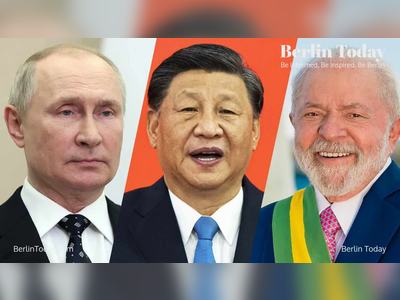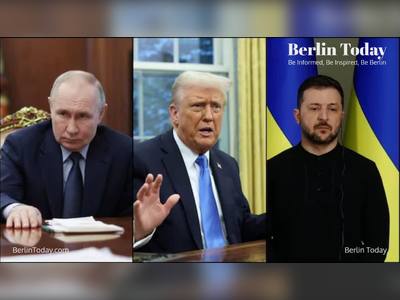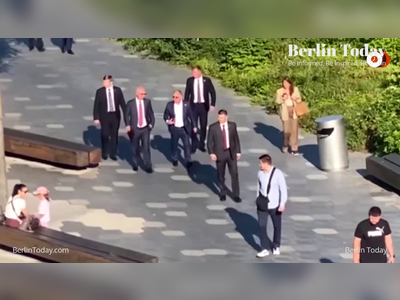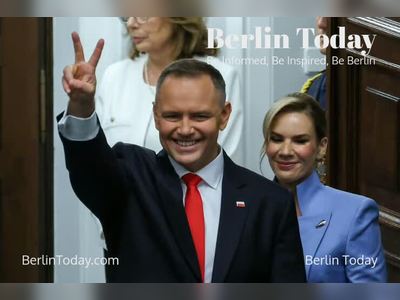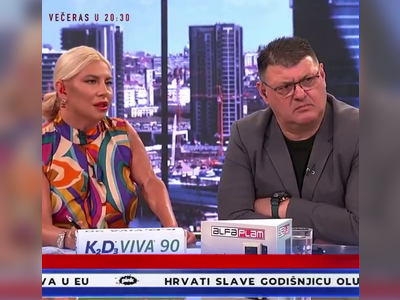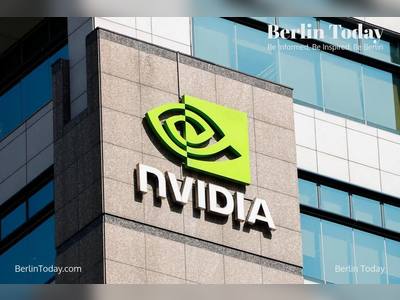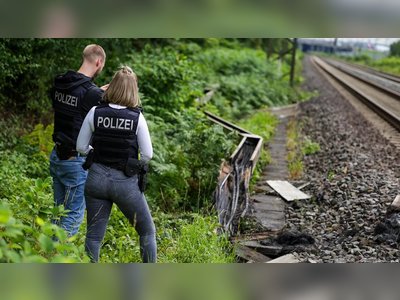
German Chancellor Merz to Meet US President Trump in Washington
Friedrich Merz's first official meeting with Donald Trump marks a significant diplomatic engagement focusing on critical global issues.
German Chancellor Friedrich Merz is set to travel to Washington, D.C., on Wednesday evening for an official meeting with U.S. President Donald Trump on Thursday, marking their first face-to-face interaction since Merz took office on May 6, 2025. The agenda includes a private discussion at the White House, a joint lunch, and a subsequent press briefing, as communicated by government spokesperson Stefan Kornelius in Berlin.
This meeting follows the earlier visit of German Foreign Minister Johann Wadephul to Washington earlier this week.
Prior to this engagement, Merz and Trump had only met briefly years ago in New York City.
Merz will depart Berlin after dinner with the state premiers and will be represented by the Chief of the Chancellery, Thorsten Frei, at the Governor’s Conference on Thursday, while he is in the United States.
As part of the diplomatic protocol, President Trump will host Merz at the Blair House, an official guest residence across from the White House, an indication of the significance of the visit.
Key topics anticipated to be discussed include the ongoing conflict in Ukraine, NATO's response to external threats, and the tariff disputes between the United States and the European Union.
A priority for Merz will be to establish a productive relationship with Trump.
In recent weeks, Merz and Trump have engaged in phone discussions multiple times, including calls with other European leaders focused on efforts to resolve the Ukraine crisis.
Merz has gained Trump’s personal contact and they have reportedly begun addressing each other by their first names.
The main agenda item for Merz will likely be international diplomatic efforts surrounding Ukraine, as he has positioned himself as a leading voice among European leaders in advocating for a resolution to the conflict.
The Chancellor expressed frustration over the slow pace of progress and plans to discuss strategies to increase pressure on Russian President Vladimir Putin to negotiate a ceasefire.
European allies are preparing a new sanctions package, emphasizing the need for a coordinated response alongside the U.S. to influence Putin’s decision-making.
President Trump stated that within the next two weeks, it would become clear whether Putin is negotiating in good faith.
He indicated that the imposition of new sanctions could depend on the likelihood of reaching an agreement with Russia.
Additionally, NATO leaders are scheduled to convene in Brussels at the end of June to discuss defense spending among other strategic topics.
Trump has previously called for member nations to allocate five percent of their GDP to defense initiatives, while NATO Secretary General Mark Rutte proposed a compromise of 3.5 percent for military spending and 1.5 percent for related infrastructure needs.
Merz has supported this proposed framework.
Throughout his tenure since January, Merz has welcomed numerous world leaders, including French President Emmanuel Macron, British Prime Minister Keir Starmer, and Italian Prime Minister Giorgia Meloni.
Notably, high-profile visits from Ukrainian President Volodymyr Zelensky and South African President Cyril Ramaphosa have attracted significant media attention, particularly due to the public nature of their engagements with the U.S. President in the Oval Office.
This meeting follows the earlier visit of German Foreign Minister Johann Wadephul to Washington earlier this week.
Prior to this engagement, Merz and Trump had only met briefly years ago in New York City.
Merz will depart Berlin after dinner with the state premiers and will be represented by the Chief of the Chancellery, Thorsten Frei, at the Governor’s Conference on Thursday, while he is in the United States.
As part of the diplomatic protocol, President Trump will host Merz at the Blair House, an official guest residence across from the White House, an indication of the significance of the visit.
Key topics anticipated to be discussed include the ongoing conflict in Ukraine, NATO's response to external threats, and the tariff disputes between the United States and the European Union.
A priority for Merz will be to establish a productive relationship with Trump.
In recent weeks, Merz and Trump have engaged in phone discussions multiple times, including calls with other European leaders focused on efforts to resolve the Ukraine crisis.
Merz has gained Trump’s personal contact and they have reportedly begun addressing each other by their first names.
The main agenda item for Merz will likely be international diplomatic efforts surrounding Ukraine, as he has positioned himself as a leading voice among European leaders in advocating for a resolution to the conflict.
The Chancellor expressed frustration over the slow pace of progress and plans to discuss strategies to increase pressure on Russian President Vladimir Putin to negotiate a ceasefire.
European allies are preparing a new sanctions package, emphasizing the need for a coordinated response alongside the U.S. to influence Putin’s decision-making.
President Trump stated that within the next two weeks, it would become clear whether Putin is negotiating in good faith.
He indicated that the imposition of new sanctions could depend on the likelihood of reaching an agreement with Russia.
Additionally, NATO leaders are scheduled to convene in Brussels at the end of June to discuss defense spending among other strategic topics.
Trump has previously called for member nations to allocate five percent of their GDP to defense initiatives, while NATO Secretary General Mark Rutte proposed a compromise of 3.5 percent for military spending and 1.5 percent for related infrastructure needs.
Merz has supported this proposed framework.
Throughout his tenure since January, Merz has welcomed numerous world leaders, including French President Emmanuel Macron, British Prime Minister Keir Starmer, and Italian Prime Minister Giorgia Meloni.
Notably, high-profile visits from Ukrainian President Volodymyr Zelensky and South African President Cyril Ramaphosa have attracted significant media attention, particularly due to the public nature of their engagements with the U.S. President in the Oval Office.
Translation:
Translated by AI
AI Disclaimer: An advanced artificial intelligence (AI) system generated the content of this page on its own. This innovative technology conducts extensive research from a variety of reliable sources, performs rigorous fact-checking and verification, cleans up and balances biased or manipulated content, and presents a minimal factual summary that is just enough yet essential for you to function as an informed and educated citizen. Please keep in mind, however, that this system is an evolving technology, and as a result, the article may contain accidental inaccuracies or errors. We urge you to help us improve our site by reporting any inaccuracies you find using the "Contact Us" link at the bottom of this page. Your helpful feedback helps us improve our system and deliver more precise content. When you find an article of interest here, please look for the full and extensive coverage of this topic in traditional news sources, as they are written by professional journalists that we try to support, not replace. We appreciate your understanding and assistance.
